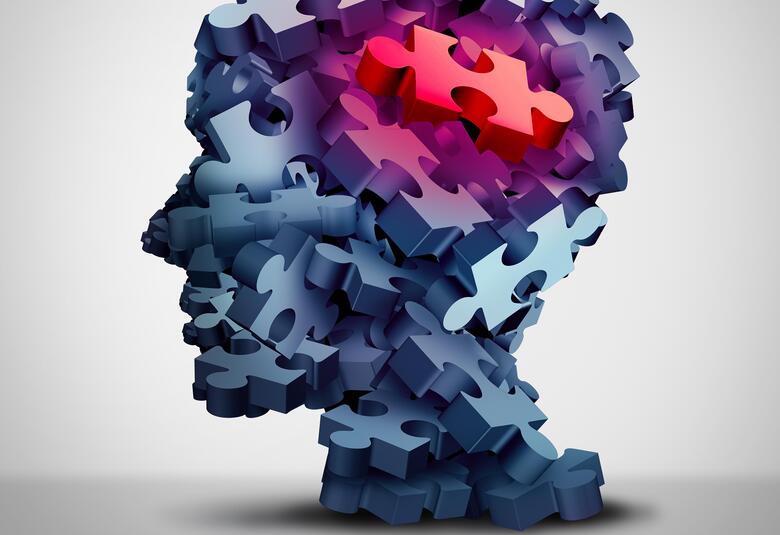
Empowerment, value and self-esteem - people with mental health problems are worth it
The stigma of mental illness is a major challenge for patients and their families. The latest research into overcoming stigma was presented at a session chaired by EPA president, Professor Wolfgang Gaebel.
People suffering from mental illness need to know that they are worth it – to be empowered and have self-esteem. The 2016 EPA symposium on overcoming the stigma of mental illness updated us on work to tackle this pervasive problem.
While progress is evident and inspiring, we need much more. Prof Wolfgang Gaebel (Heinrich-Heine-University, Dusseldorf), and President of the EPA, reminded us that if we don’t do anything, nothing will be done, and things will stay the same.
‘The stigma of mental illness is still the main obstacle to the development of mental health services and a heavy burden for all touched by mental illness’ Prof Wolfgang Gaebel
Self-stigma – accepting a lie
Self-stigma is believing the stereotypic or stigmatising views about you are true. It reduces empowerment, self-esteem, self-efficacy. Both stigma and self-stigma impact quality of life. People avoid seeking help and get stuck in a hopeless situation. Empowerment – the sense of self-realisation – allows people to overcome their powerlessness and motivates them to pursue a better future.
There are a number of actions and strategies against different levels of stigma – social, institutional and self-stigma. These actions target knowledge, attitudes and discriminative behaviour. However, the evidence for effective anti-stigma interventions addressing people with mental health problems is scarce.
STEM Trial – at first look, the results are surprising
Prof Gaebel presented the first results from the STEM study. This is the first randomised controlled trial to test psycho-educational therapy addressing stigma-coping and empowerment in patients with depression and schizophrenia. The trial, carried out in different health care settings in Germany, involved two groups:
-
Intervention: regular psycho-education (8 sessions) and stigma-coping and empowerment (3 sessions plus 1 booster session).
-
Control: regular psycho-education (11 sessions plus 1 booster session).
The main endpoint was the long-term improvement of perceived quality of life (WHO-QOL) compared to the control group. More than 300 patients (65%) completed the 12-month follow-up. Three-quarters of the patients had depression, and a quarter had schizophrenia.
Surprising results
Overall, as well as in the depressed subgroup, there was no difference between the intervention and control arms in WHO-QOL at 12 months. In the schizophrenia group, there was in fact a non-significantly higher WHO-QOL among controls. These results are surprising.
The statistical analysis is still in progress and no definitive conclusions have been drawn.
Possible reasons for lack of effect may be that the intervention and control groups were actually managed in a very similar way– only 4 of the 12 sessions addressed different topics (i.e. included empowerment). Also, the good standard of basic treatment in both groups might make it difficult to see an intervention effect.
Research into stigma in Europe – is there much?
Prof Sara Evans-Lacko (London School of Economics and Political Science), described the current state of research on social exclusion and stigma in Europe.
Literature mapping was used to select relevant articles published between 2007 and 2012 - 810 articles were included in the analysis. The patients in these studies suffered from a range of mental disorders including depression and schizophrenia. By far, most of the articles were from the UK, followed by Germany and the Netherlands. Very few came from Eastern European countries. The research was primarily in detection, screening and diagnosis.
Her conclusion is that despite growing interest in this field, there is still little research looking specifically at ways of protecting against and reducing stigma and promoting resilience and social inclusion.
Beacon of light – we must follow
Prof Yoram Cohen, Acting President of Global Alliance of Mental Illness Advocacy Networks (GAMIAN)-Europe asked the question: seven years after ratification of the United Nations Convention on the Rights of Persons with Disabilities (UNCRPD), are there any advances for patients with mental health conditions?
The UNCRPD is a beacon of light to follow. It recognises that discrimination based on disability is a violation of the person’s inherent dignity and worth. The contributions made by persons with disabilities to the overall well-being of their communities are valuable. And autonomy and independence for persons with disabilities, including the freedom to make their own choices, are important.
Despite the ideals proclaimed in the UNCRPD, care in many mental health facilities around Europe is still of poor quality and in some cases may hinder recovery.
The misconception that people with mental health problems are not able to take responsibility, manage their affairs and make decisions about their lives contributes to ongoing marginalisation in their communities.
Stigma goes to the heart of what it is to be human
Bert Johnson, President of EUFAMI – the European Federation of Associations of Families of People with Mental Illness – highlighted the harsh reality of stigma and the fact that it goes to the heart of what it is to be human.
Families also suffer from stigma. The Caring for Carers (C4C) survey assessed the experiences of family members caring for their relative with severe mental illness from a number of countries. A third of carers reported that they are treated differently because of the mental illness of the person they care for. People felt reluctant to invite guests to their home and withdrew from relationships.
The recommendations to counter stigma are common sense, Mr Johnson told the audience – but it is putting them into practice that counts. These include education about mental health and the care required, and raising public awareness of the impact of mental illness on families.


